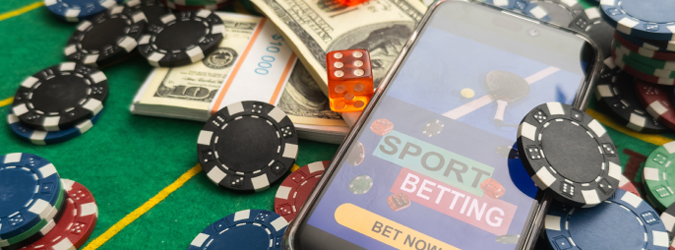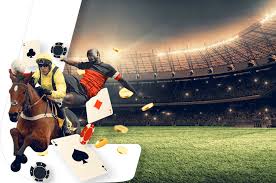
From casual gaming to competitive: A Journey Through the Evolving Landscape of Gaming
In recent years, the gaming industry has witnessed a massive transformation, evolving from simple casual gaming experiences to highly competitive arenas that capture the attention of millions. This evolution highlights the multifaceted nature of gaming culture, where players engage on various levels, from enjoying a relaxed gaming session to competing in high-stakes tournaments. One of the most exciting aspects of this transformation is the accessibility of competitive gaming, which has led to a diverse community of players striving to improve their skills and enjoy the thrill of competition. Players can easily shift from casual to competitive gaming by embracing platforms that facilitate engagement, such as From casual gaming to competitive betandreas login, which opens up opportunities for tournaments and esports events.
The Rise of Casual Gaming
Casual gaming has been a staple of the industry for decades, with titles designed to be easy to pick up and play. Games like “Candy Crush”, “Angry Birds”, and various mobile puzzle games have attracted a wide demographic, making gaming an accessible form of entertainment for people of all ages. This accessibility has fostered a gaming culture where players can engage for fun, leisure, and relaxation without the pressure of competition.
The rise of smartphones and mobile applications has further fueled this trend, allowing individuals to play games anytime and anywhere. The simplicity and instant gratification offered by casual games have made them extremely popular, leading to a massive player base that includes individuals who may not identify as “gamers”.
Transitioning to Competitive Gaming
As the player base for casual games has grown, so has the desire among many players to explore more competitive avenues. This transition is often sparked by a sense of community and a desire for collaboration, as many casual gamers seek out multiplayer experiences. Online multiplayer games, such as “Fortnite” and “Among Us”, have popularized competitive elements, drawing in players who may have initially been casual gamers.
The competitive gaming scene has also expanded with the introduction of esports, where professional players compete in organized tournaments with significant prize pools. Esports has transformed gaming into a legitimate career path for many, attracting sponsorship and media attention. This has created role models for aspiring players, further promoting the shift from casual gaming to a competitive mindset.
The Role of Technology
Technology has played a pivotal role in facilitating this transition. With improved internet connectivity, streaming platforms, and social media, players can easily connect with each other, forming communities around their favorite games. The rise of platforms like Twitch has allowed casual gamers to watch professional players and learn from them, heightening their interest in competitive play.
The development of matchmaking systems in games has also leveled the playing field, allowing players of similar skill levels to compete against each other. This encourages casual gamers to test their skills in a more competitive environment without feeling overwhelmed by more experienced players. As a result, many players have found enjoyment in honing their skills and competing against others, fueling the competitive gaming scene.

The Competitive Gaming Experience
Engaging in competitive gaming brings a new level of intensity to the experience. Players often find themselves deeply focused, practicing strategies, and analyzing their performance to improve. This shift adds a layer of excitement and motivation to gaming, driving players to dedicate more time and effort to their craft.
The competitive experience also fosters camaraderie among players. Many gamers find a sense of belonging in guilds, clans, or teams, where they work together towards common goals. This community aspect adds to the enjoyment of competitive gaming, as players share both victories and defeats, learning and growing together.
Challenges and Considerations
However, the transition from casual to competitive gaming is not without its challenges. The pressure to perform can lead to frustration, burnout, and even toxicity within the community. It’s essential for players to maintain a healthy balance and recognize that gaming is ultimately meant to be enjoyable.
Moreover, the competitive landscape can be daunting for newcomers. The skills gap between casual players and seasoned competitors can feel insurmountable at times. This makes it crucial for the community to be welcoming and supportive, creating an environment where new players can learn and grow.
The Future of Gaming
As the gaming industry continues to grow and evolve, the line between casual and competitive gaming will likely blur further. Developers are increasingly recognizing the importance of inclusive gameplay experiences that cater to both casual and competitive audiences. Future games may incorporate features designed to elevate the casual gaming experience while nurturing competitive aspirations.
Furthermore, as technology advances, we can expect to see more immersive experiences that encourage community engagement and competition, whether through virtual reality or enhanced online platforms. The potential for innovation is limitless, as players seek out new ways to connect, compete, and push their limits in both casual and competitive gaming settings.
Conclusion
The evolution from casual gaming to competitive arenas has forged a dynamic gaming culture where players can pursue enjoyment on multiple levels. The accessibility of gaming has opened doors for individuals to explore their passions, whether for relaxation or competition. By fostering a sense of community and encouraging skill development, the gaming world can cultivate an environment that celebrates both casual and competitive play. As we look towards the future of gaming, it is clear that this evolution will continue, allowing players to navigate between these two worlds and redefine what it means to be a gamer.